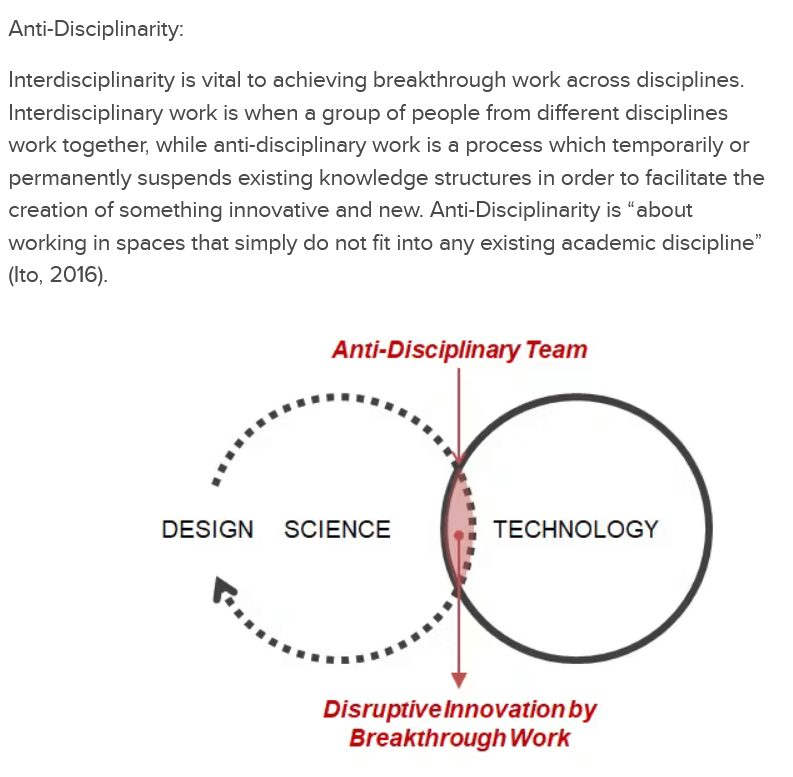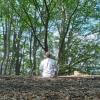Hi all first post here, I just stumbled onto this forum. I really liked the video with Tom August shared in another thread here that I happened to see just now, especially the parts about doing our best to keep enthusiasm and positivity for the ultimate goal of why we're all interested in what we do.
This seems like a great place for sharing interesting projects, tutorials or websites people have found or stumbled onto. I feel like sometimes people can get so caught up in endless meetings/discussions/red tape that they end up hardly doing actual much real life action, so a lot of my enthusiasm is for trying to do things, even if I have a big lack of formal training/study.
Earlier I also stumbled onto this concept in the text of a bioacoustics project that I really liked and really connects with how I've felt for a long time but without being able to put it so succinctly:

I have basically zero academic training but just a massive love for nature and trying to do what I can to help nature and get more people interested in nature. I've thus far done more nature volunteering here in England, and also done a small little project in my own time the last few years finding places to donate and plant trees at here.
Now for a new "micro reserve" project I'm currently planning/creating, I'm currently looking at various possibilities for DIY or commercial projects, cameras or pollinator/insect monitoring devices, e.g. such as that newish commercial Polly device by the company Agrisound (for monitoring pollinators), and things like Audiomoth, or potentially some completely DIY solution using something like raspberry pi, arduino or adafruit etc. And even wild ideas like simply recording the sounds of nature to create some kind of experimental music/sound art using the recordings. Unfortunately this DIY project I was initially excited about is not available to buy ready made from the original seller and their custom app is also gone I think - but this instructable tutorial gives some pretty good ideas for using an old lower power smart phone with solar to create a kind of webcam. - that could give some leads for how to create more DIY options for this.
Some of these devices look so cool but are unfortunately super expensive or more geared at corporate/industrial use I think.
Feel free to share anything interesting things you're working on or have stumbled onto lately!
Thanks!
This DIY project looks awesome which I might attempt as it looks like the closest thing almost to what I've been looking for to try to track/monitor wild pollinators/bees/butterflies etc, the other devices I've seen so far are either still in development, exorbitantly expensive or seem to be walled off more just for large scale industrial/farming/corporate use etc.
12 July 2023 10:01pm
Welcome to our community @Surfingpsychedelicchicken! From what you've said here, you might be interested in some of the work @hikinghack has been doing (e.g. this conference). Have a poke around his profile to get a taste of what they've been doing. You might also be interested in @lucianofoglia's wonderful talk from our May Variety Hour about his journey and work to develop a sensor system for monitoring Snow Leopard in Kyrgyzstan.
There are a whole lot of people and projects to connect to here, but these two might be a good start! Our monthly variety hour is a great place to discover the community - next one is coming up next wednesday. We'll have the invite up in the calendar in the next few days.
Hope that helps!
Steph

Pen-Yuan Hsing
MammalWeb.org
28 July 2023 5:43pm
Thanks for starting this thread @Surfingpsychedelicchicken!
I've been working with folks mostly in the Gathering for Open Science (GOSH) community on giving wildlife camera traps stereovision capabilities. See this thread for our extensive discussion on the subject. Stereovision allows camera traps to capture spatial data about the scene in addition to images of wildlife, and this piece of information can greatly help estimate population size.
Recently, one of my colleagues developed a 3D-printed addon that could provide that function. It's looking promising and we're at 95% for a crowdfunding campaign on Experiment.com with just under a week left (also posted here). Sorry to sound self-promoting, but I genuinely believe we've got something going here, and would definitely appreciate some support big or small!
Happy to discuss more here or in the other threads linked to.
P.S. I love your point about anti-disciplinarity!
16 August 2023 12:46pm
Super duper getting that mesh network working. Valuable resources. I have been working with IP camera systems since 2008 and have tried a lot of them. Ubiquiti itself is a great networking brand, the only comment I have about their cameras though is that they do not support a motion jpeg (mjeg) stream of any sort. What this means is that in order to get a still image for use in an AI computer vision system you have to waste GPU power somewhat getting the still. Generally speaking I would suggest to new things that have in their mind future AI integration is to choose a camera that supports an mjpeg stream with a custom frame rate. For example, I have 15x cameras around my home. They are all being analyzed in real time with the highest scoring object detector (Currently) (That is published using the coco dataset from microsoft) yolov6. I also double check matches sometimes with yolov7 to provide extra resilience to false positives.
For this I tend to consume an mjpeg camera stream at 640x480 resolution at a frame rate of just 6 frames per second. That means that any system that is performing local object detection on something like the jetson series SBCs do not have to use any of their capacity first decoding mpeg streams to images.
31 August 2023 9:46pm
Hi! @Surfingpsychedelicchicken ! yeah we run a conference kind of about this (well actually i've been helping run two conferences about this!) Dinacon and the GOSH gathering! Thanks @StephODonnell !
www.dinacon.org is about an anti-disciplinary gathering of people to explore field biology and design and it's a long form conference (minimum stay 7 days, whole conference is 1 month+)
GOSH is another group kind of like wildlabs here, a bit less focused on field tech, but still has lots of international folks working on open science hardware of many sorts
And they also have an "unconference" that happens every couple of years (last year it was in panama) that is more traditional (4-5 days) but chock full of wonderful folks!













Stephanie O'Donnell
WILDLABS